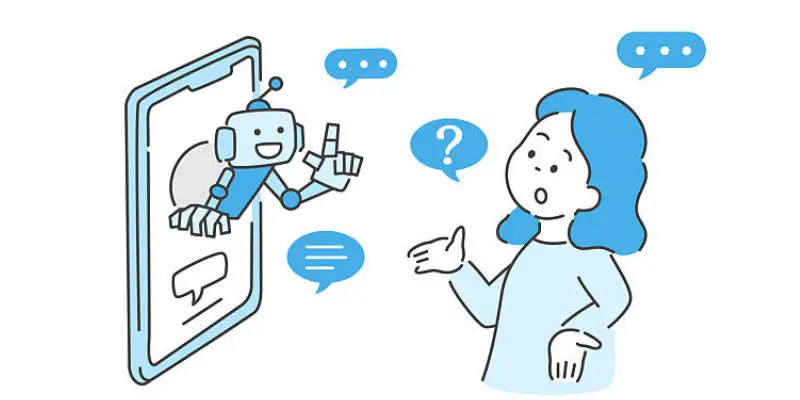How AI Answers Medical Questions in Simple Ways
Published: 7 May 2025
Have you ever searched online for answers to your health questions? You are not alone. Millions of people do this every day. But sometimes the answers can be confusing or even wrong.
That’s where AI comes in. It Means medical AI assistants in the form of computer programs that can learn and give answers just like talking to a helpful doctor. In healthcare, AI tools are now helping people ask simple medical questions and get fast replies.
This blog will show you how AI works for medical questions, where you can use it, what it can and can’t do and how to stay safe while using it. Ready to learn something new and useful? Let’s get started.

What Is AI for Medical Questions?
AI for medical questions means using smart computer programs to answer health-related queries. These tools are trained to understand simple health problems and respond in helpful ways.
Think of it like asking a virtual nurse or friendly assistant about your symptoms.
How Does It Work?
AI reads and learns from lots of health data, like:
- Doctor-reviewed articles
- Symptom checkers
- Medical guidelines
Then, it uses that knowledge to:
- Understand your question
- Find the most helpful answer
- Give you a response in seconds
Example
Let’s say you ask, “What are the signs of diabetes?”
An AI chatbot might answer:
“Some common signs include feeling very thirsty, going to the bathroom often and feeling tired a lot. But please talk to your doctor for proper testing.”
It’s fast, friendly and gives basic info but it won’t replace your doctor.
Where Do People Use AI for Medical Questions?
AI is now part of everyday life, even in healthcare. You don’t need to be a tech expert or a doctor to use it. In fact, you might already be using it without even knowing.
Here are the main places where people turn to AI for help with health questions:
a. Healthcare Chatbots
These are online tools that answer your questions by chatting with you just like texting a friend. They are built into hospital websites, telehealth platforms and health apps.
You type your question and the AI replies with helpful information. It may ask follow-up questions to better understand your symptoms.
Why It’s Helpful
- Available 24/7
- No waiting in line or on hold
- Simple answers in plain language
Example
You go to a hospital’s website and see a chat pop-up that says, “Hi! How can I help you today?”
You type: “I have a sore throat and a fever.”
“These could be signs of a cold or flu. If the fever is high or lasts more than two days, please contact your doctor.”
b. Voice Assistants
Devices like Alexa, Google Assistant or Siri use AI to answer questions when you speak to them. These tools are in smart speakers, phones and tablets.
You ask a question out loud. The voice assistant finds information and reads the answer back to you.
Why It’s Helpful
- Hands-free
- Good for quick answers
- Great for people with vision problems or limited mobility
Suggested Article: Risks of AI Associated with Diagnosing Diseases
Example
You say: “Hey Google, what can I do for a headache?”
It replies:
“Try resting in a quiet, dark room and drinking water. If your headache is severe or doesn’t go away, see a doctor.”

c. Health Apps
There are many apps made just for health. These apps often use AI to check your symptoms, guide you with tips or track your health over time.
You open the app, answer a few questions and the AI gives you suggestions. Some even help you book appointments or talk to real doctors.
Why It’s Helpful
- Easy to use
- Gives health tips in seconds
- Can help prepare you for a real doctor visit
Examples of Popular Apps
Ada– Asks questions and suggests what might be wrong
Babylon Health– Offers AI-powered consultations and doctor access
Buoy Health– Helps you figure out what kind of care you may need
WebMD Symptom Checker– Uses AI to match symptoms with possible causes
Tip Box: Try This
Download an app like Ada or Buoy Health. Ask it, “Why do I feel dizzy?” See how it guides you through simple questions and gives a helpful response.
What Can AI Answer and What It Can’t?
AI can answer a lot of basic health questions. But it also has limits. Let’s look at both sides so you know how to use it safely.
a. What AI Can Do
AI is smart, but not perfect. Here’s what it does well:
- Gives general health info
Example: “What are the symptoms of the flu?”
AI gives a list of common signs in seconds. - Helps you track symptoms
Some apps let you log how you feel each day. AI checks your entries and spots patterns. - Tells you when to see a doctor
It won’t diagnose but it may say, “This could be serious. Please contact a doctor.” - Offers simple health tips
Like drinking water, resting or trying home remedies for a mild cold.
b. What AI Can’t Do
Even smart tools have limits. AI is not a doctor.
- It can’t diagnose your condition
It only gives ideas not medical decisions. - It can’t help in emergencies
If you have chest pain or can’t breathe, call emergency services right away. - It doesn’t know your full medical history
AI doesn’t know your allergies, test results or past illnesses.
Advantages and Disadvantages of AI For Medical Questions
AI for medical questions has its ups and downs. It’s helpful in many ways but also has some limits. Let’s look at both sides.
| Advantages |
|---|
|
| Disadvantages |
|---|
|
Best AI Tools That Answer Medical Questions
There are many AI tools for medical questions out there that can answer your health questions. I am just giving a two line overview of these tools, please find a detailed article on Best AI for Medical Questions which contains a detailed analysis of these tools.
Here are some of the best and easiest ones to try:
1. Ada Health
- A symptom checker that helps you understand what might be causing your symptoms.
- Easy to use with clear steps.
2. Buoy Health
- A conversational helper that asks simple questions and gives helpful advice.
- Great for figuring out whether you need to see a doctor.
3. WebMD Symptom Checker
- Powered by AI, this tool helps you check symptoms and find possible causes.
- It also offers tips on when to see a doctor.
4. Babylon Health
- Available in some countries, Babylon offers AI-powered health assessments.
- You can chat with an AI or even connect to a doctor.
How to Use AI Tools Safely
AI tools can be helpful but it’s important to use them the right way. Here are some tips to keep you safe and make the most of these tools.
1. Choose Trusted Tools
Not all AI tools are the same.
Pick ones that are well-known or have good reviews.
Look for apps that explain how they work and who created them.
2. Don’t Share Private Details
Be careful about sharing personal information.
Only enter sensitive details in apps that are secure and follow privacy rules.
Avoid giving too much info unless you trust the tool.
3. Use AI for Learning, Not Diagnosing
AI is a great way to learn more about your health.
But it can’t replace a doctor’s advice.
Use AI to understand symptoms, not to make medical decisions.
4. Prepare for Your Doctor’s Visit
You can use AI tools to track symptoms or ask questions before your appointment.
This can help you feel more prepared and save time at the doctor’s office.
Example Box:
“Before seeing her doctor, Jane used an AI tool to check her stomach pain. It helped her explain her symptoms clearly.”
Conclusion
So guys! In this article, we covered AI for medical questions in detail. AI tools are a great way to get quick and simple answers about your health. However, always remember that while they can offer helpful advice, they should not replace professional medical care. My personal recommendation is to use AI to learn more and prepare for doctor visits but never skip seeing a healthcare provider for serious concerns. If you want to try an AI tool, start with one of the options we have discussed above and use it safely. Give it a try today and see how AI can help you on your health journey!
Related Queries!
Here are most common questions and their answers:
AI medical tools are typically 70-85% accurate for basic conditions but can’t match a doctor’s expertise and judgment. Real doctors consider your full medical history, can perform physical examinations and have years of training and experience. While AI can provide helpful general information, doctors remain significantly more accurate for actual diagnosis and treatment.
Most reputable medical AI tools use encryption and follow privacy laws like HIPAA to protect your information. However, different tools have different privacy policies, so always read their terms before sharing sensitive health information. Look for tools that clearly state they don’t sell your data and have strong security measures in place.
Yes, some AI tools are specifically designed to provide mental health support and information. These tools can offer coping strategies, mindfulness exercises and basic information about common mental health conditions. However, for serious mental health concerns, they should only supplement, never replace care from qualified mental health professionals.
If you suspect incorrect advice, always prioritize information from your healthcare provider over AI suggestions. Cross-check information with reputable health websites like CDC.gov or Mayo Clinic, or call your doctor’s office if you are concerned. Remember that AI tools should be used for information gathering, not as your final decision-maker for health concerns.
Many basic medical AI chatbots and symptom checkers are available for free on hospital websites or as free apps. More advanced AI health tools may offer free basic services with premium features requiring subscription fees ranging from $5-20 monthly. Free options are great for simple questions, while paid versions often provide more detailed guidance and additional features.
Look for AI tools created by or partnered with established healthcare organizations or medical schools. Check if medical professionals were involved in developing or reviewing the AI’s knowledge base. Also look for transparency about the AI’s limitations and clear statements that it doesn’t replace professional medical care.
Some advanced medical AI tools have specialized knowledge for different age groups but many basic ones may not account for age-specific symptoms. The best AI tools will ask for age information and adjust their responses accordingly. Always mention the age of the person experiencing symptoms when using these tools for more relevant information.
Quality medical AI tools update their information databases regularly, typically every few months or when significant new medical guidelines are released. Updates help ensure the AI stays current with the latest medical research and treatment recommendations. Look for AI tools that clearly state when their medical information was last reviewed or updated.
Many leading medical AI tools now support multiple languages with some offering services in 10+ languages including Spanish, French, German and Mandarin. Translation quality varies between tools, with some providing full functionality across languages while others offer limited features. Check the app description or website to confirm which languages are fully supported.
Start by choosing tools with simple interfaces and larger text options that are easier for seniors to navigate. Sit with them and demonstrate how to ask questions clearly and interpret the responses they receive. Create a simple written guide with screenshots showing exactly which buttons to press and remind them that AI tools are just for information and not for emergency situations.





